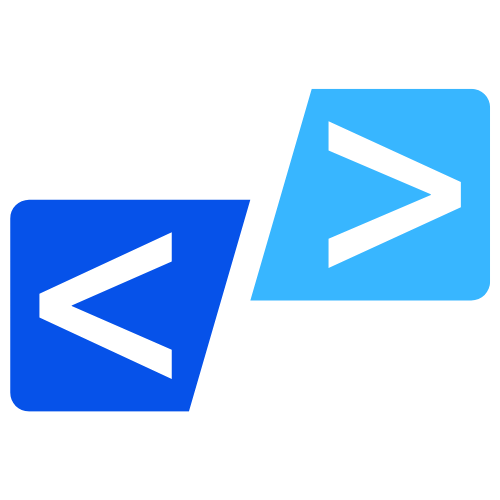
How AI Is Rewriting the Rules of Music – And What It Means for Your Wallet
Imagine waking up to find a robot version of your voice singing a hit song you didn’t write. For thousands of musicians, this nightmare became real when AI voice clones started flooding streaming platforms last year – some earning six figures while original artists got nothing. The same technology now lets anyone create professional-grade music in seconds, threatening careers while creating wild new opportunities. From TikTok producers in Austin to Wall Street investors betting on AI music stocks, America’s creative economy is undergoing its biggest shakeup since Napster. Here’s what you need to know about the AI revolution hitting speakers everywhere – and how to avoid getting left behind.
1. Your New Bandmate: How AI Tools Are Democratizing Music Creation
In San Francisco’s Mission District, startup Splash lets users create Billboard-ready tracks by typing “1995 Jill Sobule vibes with trap beats.” The app’s AI analyzes the 1995 hit “I Kissed a Girl” – its chord progressions, vocal style, and lyrical themes – to generate new songs in seconds. Similar tools are exploding across the industry:
- Los Angeles-based Soundful helps influencers create custom background tracks using AI models trained on top-charting songs
- Nashville startup Cyanite uses AI to match unsigned artists with sync opportunities in TV ads
- New York’s BandLab saw 10M new users after launching AI stem separation for remixing classics
“It’s like having Rick Rubin in your laptop,” says college student turned AI music entrepreneur Priya Kapoor, who earned $12,000 last month selling AI-enhanced beats on BeatStars. “But artists need to adapt fast – the tools won’t replace musicians, but musicians using tools will replace those who don’t.”
2. The Copyright Wars: Who Owns AI-Generated Music?
When an AI clone of Drake and The Weeknd’s “Heart on My Sleeve” went viral last April, Universal Music Group threatened lawsuits and got it pulled from streaming services. Now, New York courts are seeing a flood of cases that could reshape intellectual property law:
| Case | Issue | Potential Impact |
|---|---|---|
| Getty Images vs. Stability AI | Using copyrighted images to train AI | Could set precedent for music training data |
| Ed Sheeran Copyright Suit | Similar chord progressions in pop songs | May affect AI-generated music originality |
Chicago entertainment lawyer Mara Brock tells us: “If someone uses AI to make a song that sounds like Jill Sobule’s 1995 hit, who’s liable – the programmer, user, or AI itself? Right now, it’s the Wild West.”
3. Side Hustles: How Creators Are Cashing In
Austin’s SXSW festival featured multiple panels on AI music side gigs this year. Top opportunities include:
- Custom Song Shops: Charge $50-$200 to make personalized tracks using AI tools like Soundraw
- Sample Pack Creation: Sell AI-generated drum loops on platforms like Splice
- Sync Licensing: Use Cyanite’s AI to pitch songs for TV ads faster
DJ-turned-AI consultant Marcus Wells increased his earnings 300% by combining human creativity with AI efficiency: “I use ChatGPT to brainstorm lyrics, AIVA for orchestral arrangements, then add my signature drops. Clients get faster results at half my old rate – but I’m booking triple the gigs.”
4. The New Royalty Streams: Investing in AI Music’s Future
Wall Street’s betting big on this shift. BlackRock recently launched an ETF focused on generative AI music companies, while Los Angeles-based startup Endel (which creates AI-powered wellness soundscapes) secured $15M in funding. For individual investors:
- Stock Watch: Companies like Adobe (Premiere Pro’s AI audio tools) and Spotify (AI DJ feature)
- Blockchain Solutions: Startups like Audius using crypto for fair royalty distribution
- Music NFTs: Kings of Leon made $2M selling AI-enhanced NFT album tokens
But financial advisor Lisa Yang warns: “This market’s volatile. Diversify – maybe 5% of your portfolio in AI music stocks, max.”
5. Protecting Your Sound: What Musicians Need to Do Now
From voice cloning prevention to new revenue models, artists are fighting back with tech:
- Anti-Cloning Tech: Companies like Resemble AI offer voice fingerprinting to detect imitations
- Direct-to-Fan AI: Grimes lets fans make songs with her AI voice for 50% royalty splits
- Web3 Platforms: Royal lets artists sell song shares as tokens via blockchain
“It’s about using AI before it uses you,” says indie artist Zoe Cruz, who boosted her Patreon income by offering AI-assisted songwriting workshops. “Fans love seeing the human behind the tech.”
The Beat Goes On: Your Next Move
AI isn’t ending music – it’s changing the instruments. Whether you’re a creator, investor, or casual listener, understanding these shifts is crucial. Start small: Try making an AI jingle for your side hustle, invest $100 in a music tech ETF, or simply stay informed about copyright changes. The musicians who’ll thrive aren’t those fighting the tech, but those learning to play this new symphony.
Resources
FAQs:
- Can I legally use AI to make songs that sound like famous artists? Not commercially – voice/style cloning without permission risks lawsuits.
- Which AI music tools are actually useful? BandLab (free), Soundful (pro-tier), and Mubert for royalty-free tracks.
- How do I protect my music from AI scraping? Services like TrackID can watermark your audio files.
Top Tools:
- BandLab (Free AI music suite)
- LANDR (AI mastering for $4/month)
- Beatoven (Create mood-based tracks)
5 Quick Tips:
- 1. Watermark your vocals with tools like VoiceMark
- 2. Sell AI-assisted song drafts on Fiverr
- 3. Invest in music tech ETFs like $MUSQ
- 4. Use ChatGPT to brainstorm unique song titles
- 5. Register works with the U.S. Copyright Office’s new AI disclosure system






